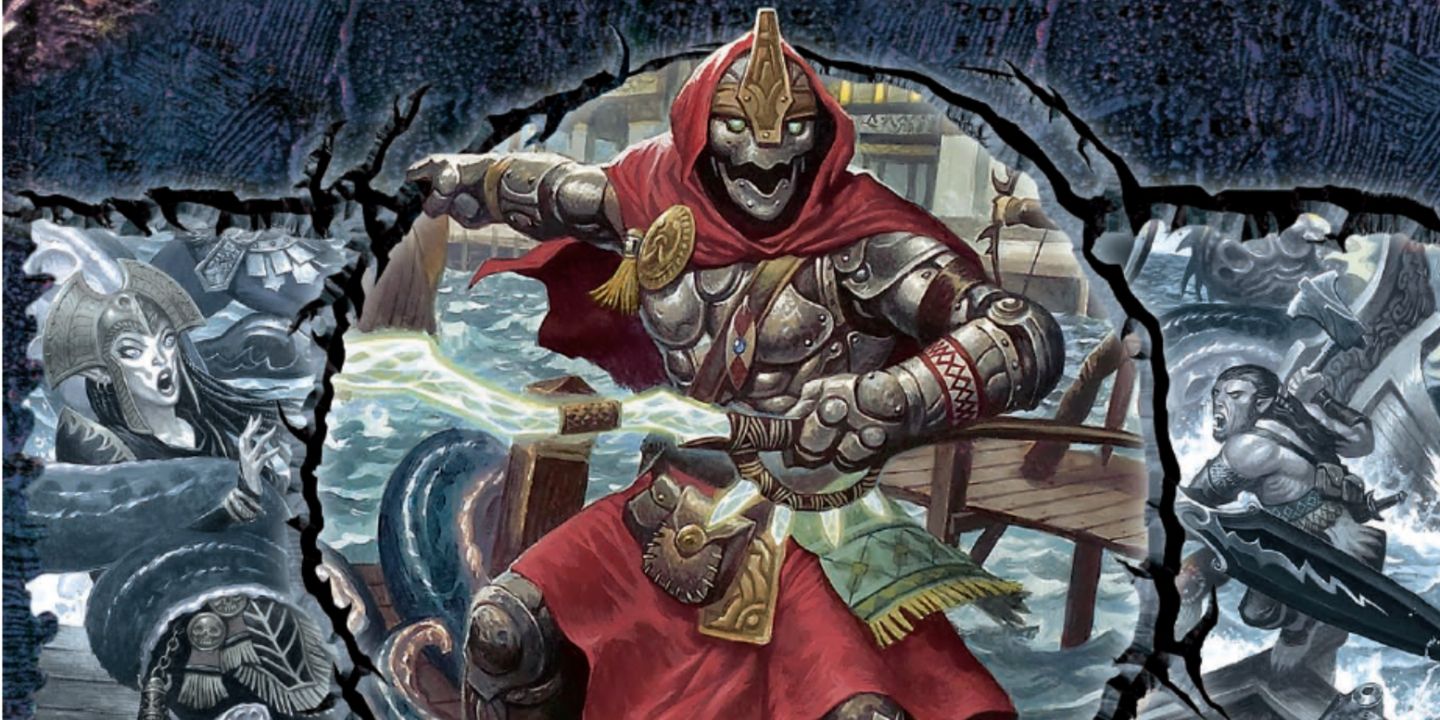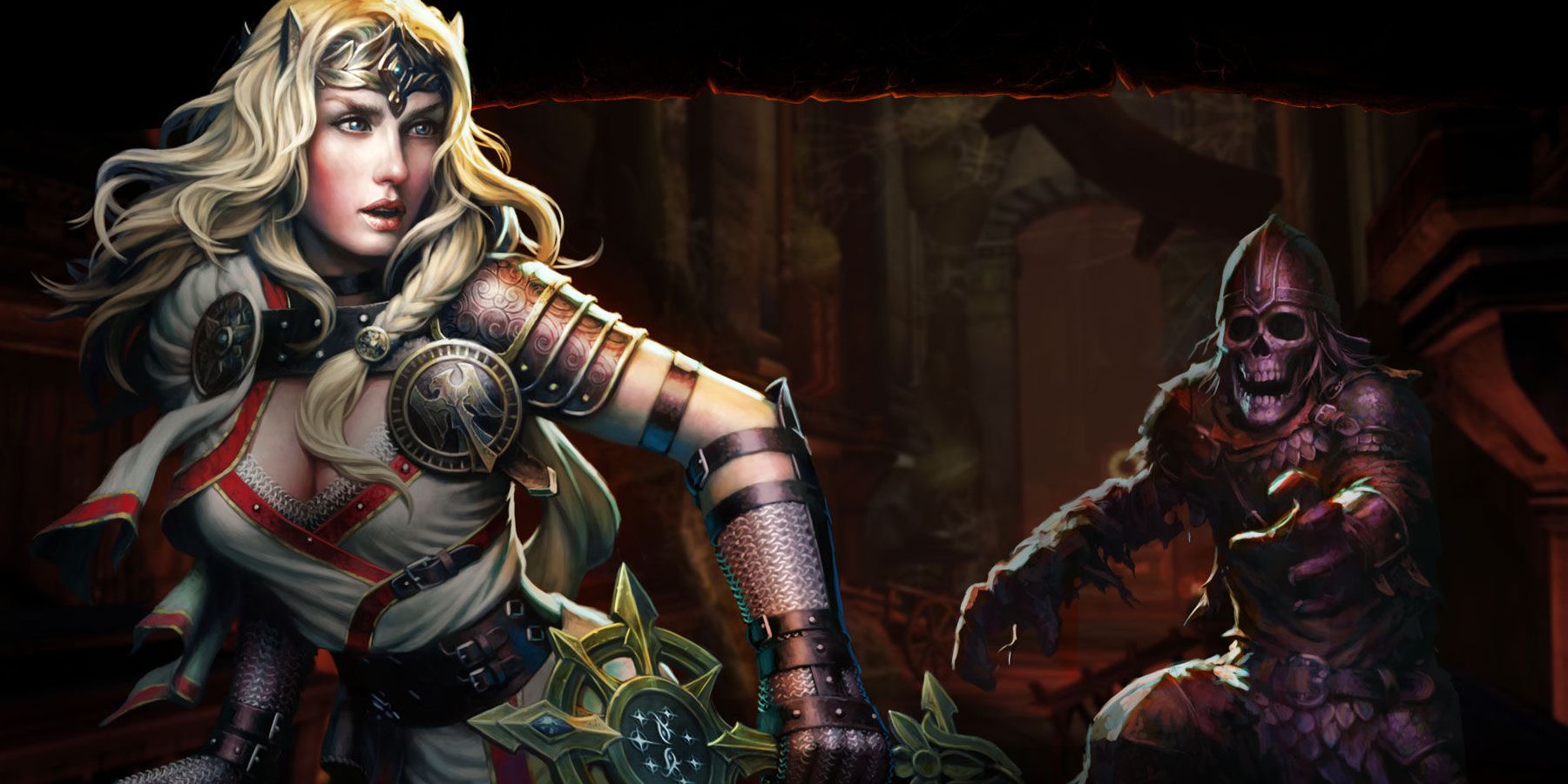The latest Unearthed Arcana article for Dungeons & Dragons has introduced the Fate Domain subclass for clerics, granting them the ability to see events before they happen and tie their destiny to others. It seems like an odd notion for D&D to have fate, considering how many important events are decided by dice rolls, but there are deities that rule over fate, with the DM being the mightiest among them. The wild magic sorcerers don't realize it, but they are the closest to understanding the truth of reality, as they have the ability to use magic to tip the odds in their favor.
One of the most powerful schools of magic in D&D is Divination, or rather, it should be. D&D's school of Divination contains spells that can see far-off places, decipher unknown languages, and even predict the future in limited ways. The problem is that Divination spells tend to take a lot of the fun out of the game, as they remove the element of surprise from the story. A smart player knows that they should use their Divination spells sparingly, as always relying on arcane eye or clairvoyance will force the DMs hand, and there will soon be magical countermeasures put in place that stop Divination spells from working.
Divination magic is often associated with wizards, but clerics also make for potent diviners. This is because they can contact their deity and ask them for knowledge, though answers aren't always guaranteed. The "Wonders of the Multiverse" Unearthed Arcana article has introduced a playtesting version of the Fate Domain subclass for clerics. The playtesting content in D&D books isn't always guaranteed to make it in (like the cut D&D Mages of Strixhaven subclasses), but if it does, then future D&D players will have a character that is skilled in seeing the future. The Domain spells of the Fate Domain cleric include dissonant whispers and heroism at level 1, see invisibility and warding bond at level 3, beacon of hope and clairvoyance at level 5, death ward and divination at level 7, and commune and geas at level 9. This means the Fate Domain cleric is always stacked with Divination spells, but what about their subclass abilities?
Fate Domain Clerics Can Protect Themselves With Visions
The Fate Domain clerics gain access to two abilities at level 1: Ties That Bind and Omens and Portents. Ties That Bind lets the cleric form a magical bond with a creature or object by touching it, allowing them to know the direction of the bonded subject for the next hour. If the subject is an unwilling creature, then they can make a Wisdom saving throw to avoid the effect. While Ties That Bind is in effect, the character will heal or damage the creature by an additional 1d6 when using spells. Omens and Portents let the cleric cast D&D's augury spell once per day for free and reduces the chance of their deity ignoring the answer from a divination spell by 25%.
Once the Fate Domain cleric hits level 2, they can use their Channel Divinity feature to power their new Strands of Fate ability. It takes a bonus action to activate Strands of Fate and it remains active for a minute or until the caster's concentration is broken. While the caster is under the effects of Strands of Fate, they can use their reaction to give another creature that is making an attack roll or ability check advantage or disadvantage on their roll. This means Strands of Fate can be used to aid allies or weaken enemies, though the fact that it requires concentration to use does limit its appeal somewhat, as it prevents some D&D character-buffing spells (like bless) from being used.
The 6th-level Fate Domain ability is Insightful Strikes, which requires a bonus action to use and target a creature within 30ft. Until the end of the caster's next turn, they force that target to take a penalty in response to certain actions. If the cleric attacks the target, they add 1d6 to the attack roll, or if they cast a spell that prompts a saving throw, then the target removes 1d6 from their result. The cleric can use Insightful Strikes a number of times equal to their proficiency bonus, with all uses replenishing on a long rest. The saving throw reduction is an incredible ability, as it makes it a lot more likely for a cleric's spell to take effect. This ability is also the one that is most likely to be changed if the class makes it into a D&D book, as D&D 5e has rules updated for considerably less number-crunching, especially in battle. It's more likely that this ability will somehow confer advantage or disadvantage, as is more common in D&D 5e. Insightful Strikes also feels too much like Bardic Inspiration and Cutting Words.
The 8th-level Fate Domain ability is Potent Spellcasting, which has a simple effect, as the cleric now adds their Wisdom modifier to their cantrip spell damage. This ability shouldn't be overlooked, however, as it's possible for a cleric to have 20 Wisdom at level 8, so they'll be adding +5 damage to all of their successful uses of sacred flame. This will make it an even stronger side piece when used alongside healing word, as the D&D bonus action spell rules mean that cantrips can only be used in the same turn as a spell that uses a bonus action to cast. The final Fate Domain cleric ability is Visions of the Future, which is gained at level 17. This lets the cleric cast foresight, the only level 9 Divination spell in D&D, once per day, with its effect lasting for one minute. The foresight spell provides advantage on nearly all of the caster's rolls and forces disadvantage on rolls made against them. This is because foresight grants limited precognition, granting the caster knowledge of things to come.
It seems likely that the "Wonders of the Multiverse" content is hinting at the return of the Planescape campaign setting. The Fate Domain clerics' inclusion could be due to the fact that the struggle between law and chaos is an important part of Planescape, and the ability to control or defy one's fate is an important part of that struggle. If Planescape's setting does return to D&D, then it will unleash the Fate Domain clerics on the Dungeons & Dragons multiverse, where they can annoy DMs by peeking into the future.
Source: Unearthed Arcana


